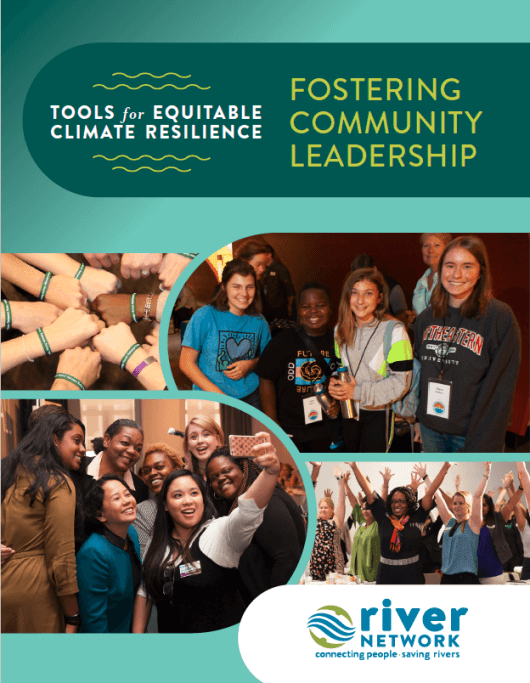Fostering Community Leadership – A Tool for Equitable Climate Resilience
As the importance of addressing climate change continues to be well-evidenced by communities combatting ever-more-frequent flooding, fire, and extreme weather, the environmental community finds itself at the intersection of science, equity, and justice – yet again. The urgency of working at this intersection is well-established – both by empirical scientific evidence, and the stories and experiences of individuals living in high-risk communities and those already identifying as climate refugees around the world. According to “When Rising Seas Hit Home” (Union of Concerned Scientists, 2017), over 12% of the US population is exposed to flood risk, with nearly 170 coastal communities living at risk of reaching or exceeding thresholds for chronic inundation by 2035. This evidence, plus the first-hand accounts of individuals who experienced the 10 tropical storms that took place in 2020 (six of which were hurricanes), illustrate a need for more locally informed and actionable solutions to climate change.

Courtesy Chatahoochee Riverkeeper.
River Network is working to identify solutions for equitable climate resilience planning: one such solution is the development and elevation of grassroots community leaders.
Marginalized communities, including communities of color, non-English speaking communities, low-income communities, and others, bear the greatest burdens of the impacts of climate change, and bring their lived experience of these impacts to the table. It is also clear that these communities are typically underrepresented in local government, on boards, commissions, and other decision-making bodies at the local, state, and regional levels. This correlation of lived experience and lack of representation helps to explain the sizable gaps in climate resiliency work across the country, and provides a critical role for community-based organizations to fill in developing local leadership, elevating community members into positions of power, and achieving equitable representation.
With a new federal administration being seated in January that identifies climate change as a priority, now is the time to engage members of communities all over the country in dialogue and decision-making to champion locally inspired climate solutions. Investing deeply in training, knowledge, and long-term support of local advocates is the key to ensuring equitable representation at the table for future discussions regarding support, resource allocation, and community investments. This development of grassroots leaders invites diverse perspectives to inform climate resiliency mitigation, adaption, and recovery efforts.
While elected seats and appointed positions are influential in such decision-making processes, community members can also play meaningful roles by serving in volunteer/stewardship positions, on nonprofit organization boards of directors, as community educators and trainers, and as ambassadors for specific issues and policies.
 With the support of the Kresge Foundation, Tools for Equitable Climate Resilience: Fostering Community Leadership provides support for community-based organizations who wish to offer such development programs, regardless of the leadership position one might have in mind. Specific case studies from around the country, accumulated research, and a step-by-step guide offer considerations and expertise on designing programs that are accessible and equitable for diverse communities. As an additional resource, River Network is also excited to offer direct technical support assistance to organizations embarking on designing and implementing such programs. We are committed to building strong champions across our nationwide network, in partnership with community-based organizations, and continuing to learn from local practitioners of this work.
With the support of the Kresge Foundation, Tools for Equitable Climate Resilience: Fostering Community Leadership provides support for community-based organizations who wish to offer such development programs, regardless of the leadership position one might have in mind. Specific case studies from around the country, accumulated research, and a step-by-step guide offer considerations and expertise on designing programs that are accessible and equitable for diverse communities. As an additional resource, River Network is also excited to offer direct technical support assistance to organizations embarking on designing and implementing such programs. We are committed to building strong champions across our nationwide network, in partnership with community-based organizations, and continuing to learn from local practitioners of this work.
For more information about support for leadership development programming, contact River Network’s Community Organizing Associate, Hannah Mico.






[…] for building community-focused leadership development programs. Since introducing the toolkit in at the end of 2020, we’ve moved forward in applying the research with members of our […]
[…] ago, River Network unveiled their new Community-Led Research Toolkit, a companion piece to their Fostering Community Leadership for Climate Resilience previously published last December. This toolkit offers step-by-step guidance and lessons learned […]